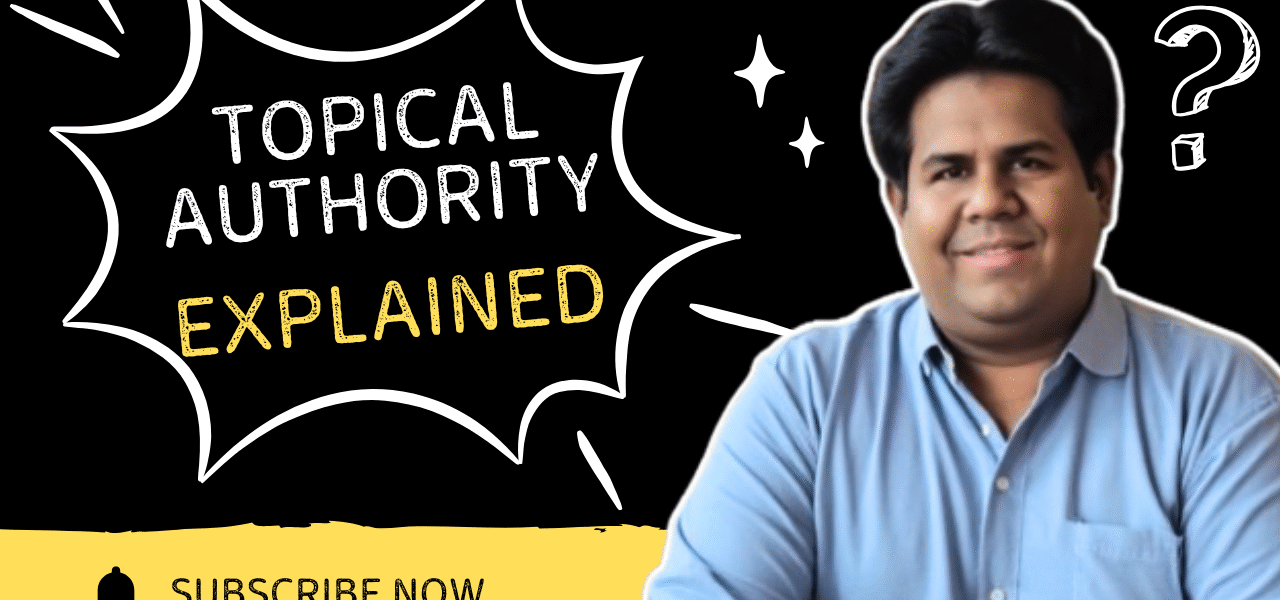Introduction
In the ever-evolving landscape of SEO, one concept has emerged as the ultimate differentiator for brands: Topical Authority. While generative AI and large language models can create endless streams of content, they still fall short when it comes to true expertise, credibility, and trust. This is where topical authority becomes the moat that AI alone cannot cross.
If you’re aiming for long-term visibility, rankings, and brand leadership, building topical authority should be at the center of your SEO strategy. In this article, we’ll break down what topical authority is, why it matters more than ever, and how you can build it systematically.
What is Topical Authority?
Topical authority refers to the degree of expertise, credibility, and trust a website or content creator commands in a specific subject area. Unlike domain authority, which is more general, topical authority measures depth and consistency within a niche.
For example:
-
A general lifestyle blog may have wide coverage but shallow expertise.
-
A site dedicated exclusively to cybersecurity will often rank higher for security-related keywords, even if it’s smaller, because it demonstrates focused topical authority.
Why AI Cannot Replicate Topical Authority (Yet)
AI excels at summarization and replication, but it struggles with:
-
Original insights – AI pulls from existing data, but it doesn’t generate lived experience or new discoveries.
-
Trust signals – Human expertise, credentials, and first-hand research are critical for Google’s E-E-A-T framework (Experience, Expertise, Authoritativeness, Trustworthiness).
-
Consistency over time – Topical authority is built through sustained coverage and engagement, something AI lacks ownership over.
Generative engines can cite and mention sources, but they rely on authoritative publishers to validate information. This dependency makes topical authority a protective moat against generic AI outputs.
Key Elements of Topical Authority
-
Content Depth and Breadth
Cover your niche comprehensively, from beginner guides to advanced analysis.
Example: Instead of one article on “SEO basics,” create a cluster that explores on-page SEO, technical SEO, link-building, schema markup, and case studies. -
Content Clustering and Internal Linking
Use topic clusters with pillar pages linking to supporting articles. This creates strong semantic signals for search engines. -
Expert Contributions
Leverage subject matter experts for credibility. Include bylines, credentials, and interviews to strengthen authenticity. -
First-Hand Data and Case Studies
Publish original research, surveys, or experiments. These are high-value assets that both users and AI will reference. -
User Engagement Signals
Encourage comments, shares, and discussions. Google increasingly values engagement as a trust signal.
Steps to Build Topical Authority
-
Pick Your Core Niche – Narrow down your focus to avoid dilution.
-
Audit Existing Content – Identify gaps and overlaps in your topical coverage.
-
Create a Content Roadmap – Use keyword research to build clusters and prioritize high-intent queries.
-
Publish Consistently – Authority builds over time with regular, high-quality output.
-
Earn Backlinks from Relevant Sources – Authority is reinforced when peers in your niche reference you.
-
Measure Progress – Track rankings, impressions, and brand mentions from AI-driven engines like ChatGPT, Perplexity, and Google’s Search Generative Experience (SGE).
The Future of SEO with Topical Authority
Generative AI will continue to shape discovery, but it cannot replace authentic human expertise. Search engines will increasingly prioritize sources with proven topical authority, making it the single most defensible SEO strategy.
Brands that double down on expertise and niche leadership today will not only rank higher in traditional SERPs but will also become the primary citations in generative search results tomorrow.
Conclusion
Topical authority is the SEO moat that AI cannot cross—at least not yet. While AI can generate content, it cannot build credibility, real-world expertise, or original thought leadership. The future of SEO belongs to those who establish themselves as undisputed authorities in their chosen domain.
If you want to future-proof your SEO strategy, invest in building topical authority now.
#SEO #TopicalAuthority #ContentStrategy #AISEO #DigitalMarketing #EAT #SearchEngineOptimization

